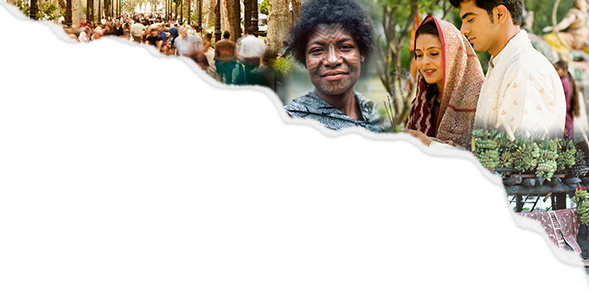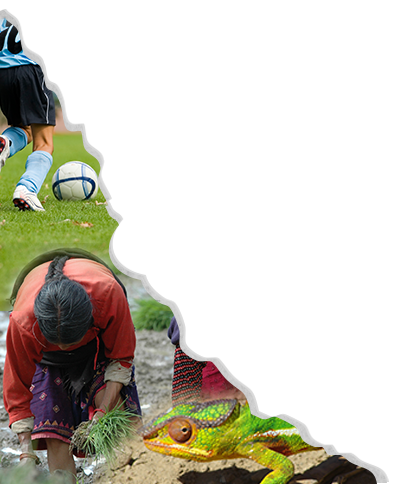By Adam Gamwell and Ryan Collins
In our first post, we discussed the inspiration and goals behind, as well as the cosmology around, This Anthropological Life. In this post we move into the medium of podcasting itself, and ponder what it might offer anthropology.
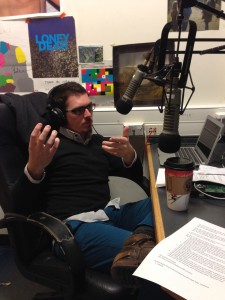 This second entry has been much more difficult for us to write than the first. We came in with an idea that this would give us an opportunity to concisely tell a story about the promises podcasting brings anthropology. Too soon we came to realize our narrative was as broad as it was vague. Rather than working entirely from an unpolished framework (this was only somewhat true, really), we came to realize that anthropology is difficult to define because it doesn’t have clear boundaries. By definition, anthropology is the study of all things, people, and social relations everywhere and everywhen. On the one hand, anthropology is the field that begins and ends with people at its very core. Yet, on the other hand, the boundaries between anthropology and, for example, astrophysics become blurred because it’s nothing more than one version of our own cosmology. As much as it is challenging, this openness is useful for anthropologists and the stories they can tell through podcasting.
This second entry has been much more difficult for us to write than the first. We came in with an idea that this would give us an opportunity to concisely tell a story about the promises podcasting brings anthropology. Too soon we came to realize our narrative was as broad as it was vague. Rather than working entirely from an unpolished framework (this was only somewhat true, really), we came to realize that anthropology is difficult to define because it doesn’t have clear boundaries. By definition, anthropology is the study of all things, people, and social relations everywhere and everywhen. On the one hand, anthropology is the field that begins and ends with people at its very core. Yet, on the other hand, the boundaries between anthropology and, for example, astrophysics become blurred because it’s nothing more than one version of our own cosmology. As much as it is challenging, this openness is useful for anthropologists and the stories they can tell through podcasting.
For its part, podcasting is a flexible medium encompassing audio and video recording, and production can range from barely edited open-format conversations to fully produced episodes with edited interviews, sound effects, and sponsors. What links the diverse formats of this medium are the characteristics of a serial format, subscription-based service, and democratized production.
Employing audio recording in anthropology isn’t new. Many anthropologists use audio and video to record interviews with informants, their own thoughts or reflections, and occasionally the soundscapes of field sites. On many occasions audio and video are used in formalized settings to record lectures and talks. However, podcasting takes this one step further, moving into relatively uncharted territory to not only collect data, but deliver that data in a flexible narrative format to a discipline uncomfortable with fixed, rigid structures.
Drawing from these broad strokes we’ve found it most fruitful to put podcasting in conversation with anthropology and fieldwork to tease out how they might work together.
What Anthropology Offers Podcasting
For graduate students or field researchers, coming and going to the field, the messy process of data collection, followed by analysis and synthesis, emphasizes their need to be open and honest about the process of research and how to work through ethnographic and archaeological data. Podcasting provides flexibility in the kind of narrative that can be told, especially if that narrative is to reveal the messiness of fieldwork, jumble of voices, cluttered sounds, and the process of moving from idea generation to actionable insight. In other words, the flexible formatting of podcasts lends itself well to expressing the demands and fuzzy boundaries of fieldwork.
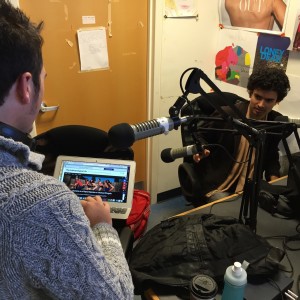 The field is exciting because it is full of messy and unintended discoveries about culture, society, individuals, and even oneself. From this perspective, there is something of a betrayal of fieldwork in a polished piece of anthropological literature. Articles, books, and chapters reach their audience as peer edited, formatted, language-specific, analyzed, referenced, and notated monoliths of research and reflection. For the eager researcher this format provides treasure troves of data and methodological guidelines from which to draw insight. But for anyone who’s undertaken or participated in ethnographic fieldwork, it is clear that there is a huge difference between collecting stories, voices, and ideas, and processing them into a coherent narrative through the use of some theoretical principle as a common unifying thread. Podcasting provides a way to structure stories that can be more true to this process.
The field is exciting because it is full of messy and unintended discoveries about culture, society, individuals, and even oneself. From this perspective, there is something of a betrayal of fieldwork in a polished piece of anthropological literature. Articles, books, and chapters reach their audience as peer edited, formatted, language-specific, analyzed, referenced, and notated monoliths of research and reflection. For the eager researcher this format provides treasure troves of data and methodological guidelines from which to draw insight. But for anyone who’s undertaken or participated in ethnographic fieldwork, it is clear that there is a huge difference between collecting stories, voices, and ideas, and processing them into a coherent narrative through the use of some theoretical principle as a common unifying thread. Podcasting provides a way to structure stories that can be more true to this process.
Multiple voices can literally be incorporated into a narrative, and this changes the way people consume stories. Actually hearing an informant’s voice, rather than the anthropologist explaining or talking over them, can facilitate a more immediate, visceral experience for the listener. Things like tone, intonation, laughter, sighs, and accents can be captured and reproduced in podcasting without interference by the anthropologist or description on the page. These immediate details reveal something of the messiness of multiple voices, languages, narratives, and the process of trying to fit things together. The inclusion of informant voices means they aren’t retold secondhand but create the narrative alongside the anthropologist—something we find more difficult to accomplish with a single-authored text.
Inspired by the trend in sensory ethnography, podcasting relays information differently than text. Hearing someone else’s voice telling their own experiences can elicit feelings of closeness from the listener. Conversely, hearing a foreign language or an unknown voice may leave the listener feeling more distant or as an outsider. The latter is important for eliciting the oft-cited feeling by anthropologists when they find themselves conducting fieldwork as an outsider trying to understand a new logic or lifeworld. Bringing more senses into ethnography is not simply a different way of telling a story, but a different way of knowing.
What Podcasting Offers Anthropology
One of the strengths of anthropology is making clear the processes and mechanisms behind social phenomena. Since podcasts are generally produced in a serial format, this provides a natural way to reveal process.
In any storytelling encounter, there is a tension between telling a coherent narrative and accurately representing the experiences that produced the narrative. What podcasts provide is a way of throwing a number of voices into the mix, literally, as a means of working through and processing field encounters. Existing podcast formats can help us think about the fieldwork encounter and how to process and structure an anthropological experience.
Think about how interesting an anthropology podcast based on the hugely popular show Serial would be: tuning-in, eagerly awaiting the denouement of your favorite whodunit mystery, with each episode based around raw voices, ideas, and the anthropologist(s) as detective, working towards some insight or resolution alongside compelling characters.
More fully produced podcasts like This American Life and Freakonomics come to listeners as polished stories with music, hosts, multiple voices, and an episodic punchline ready to go. In this case we can imagine a podcast based on “chapters” like an ethnography that introduces the overall story, sets the context, stage, and characters before moving into narrative detail about the conflict (the topic or case study), provides an exposition (the adventure), and works towards a resolution (a conclusion with next steps). Depending on the level of work completed beforehand, one could include in the script multiple voices from interviews, quotations from other anthropologists, and the thinking process behind, and stemming from, field observations.
Third is a newer idea we’re exploring, but podcasts like Fugitive Waves and Tanis are audio dramas with voice actors, music, and scripted stories. Fugitive Waves tells different stories each installment while Tanis tells an ongoing narrative. Fugitive Waves is described as movies for your ears. This format is more like an after-the-fact production that can tell an anthropological story.
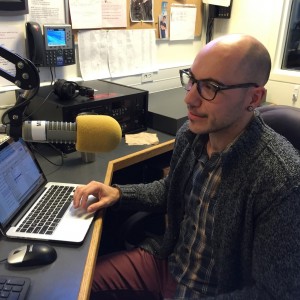 Aside from serialization, one issue that separates podcasts from traditional radio is the subscription service. This provides a compelling way to encourage listenership and production of content; the anthropologist can bring listeners along with them as they try to figure out what’s happening in the field, with new installments dropping onto phones and computers as soon as they are released.
Aside from serialization, one issue that separates podcasts from traditional radio is the subscription service. This provides a compelling way to encourage listenership and production of content; the anthropologist can bring listeners along with them as they try to figure out what’s happening in the field, with new installments dropping onto phones and computers as soon as they are released.
Finally, podcasts offer an excellent way to give back to informants and collaborators in the field. A recorded series of conversations, a produced episode or two, filled with the voices and experiences of your informants provides a powerful way to reconnect and share your work, and to show that you are in the process of understanding and knowing alongside your informants. This is what we mean when we say podcasting is a form of democratized production. Rather than handing down a finished audio recording, the anthropologist can include informants in the actual process of content selection and production—drawing from their own aesthetic and rhetorical preferences, as well as one’s own, to co-produce a podcast that they feel helps listeners know them better or tells their story in a way that makes sense to them. In this sense a podcast itself can be an anthropological artefact.
We may not be solving a murder mystery, but putting together podcasting and fieldwork seems to offer rich possibilities—for helping us understand an encounter, lifeworld, or social phenomenon, and for translating the specific details, ideas, conversations that we chance upon into compelling narrative insight about the human condition.
This Anthropological Life Podcast
“Crowdsourcing the Human Condition”
Website: Thisanthrolife.com
Subscribe on iTunes
